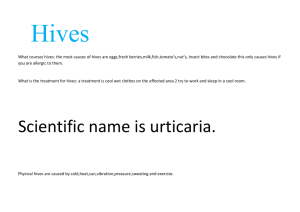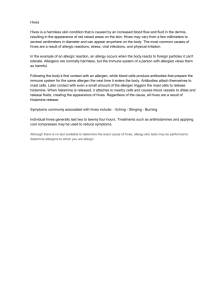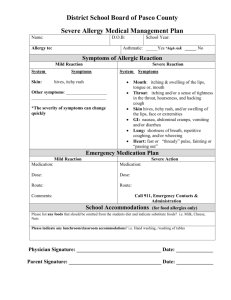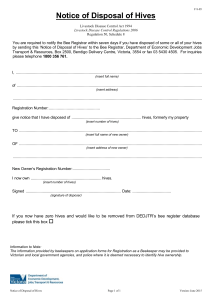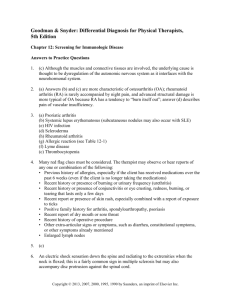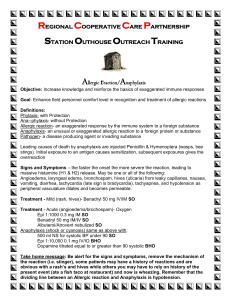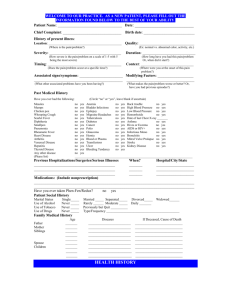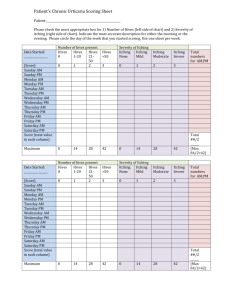Hives
advertisement
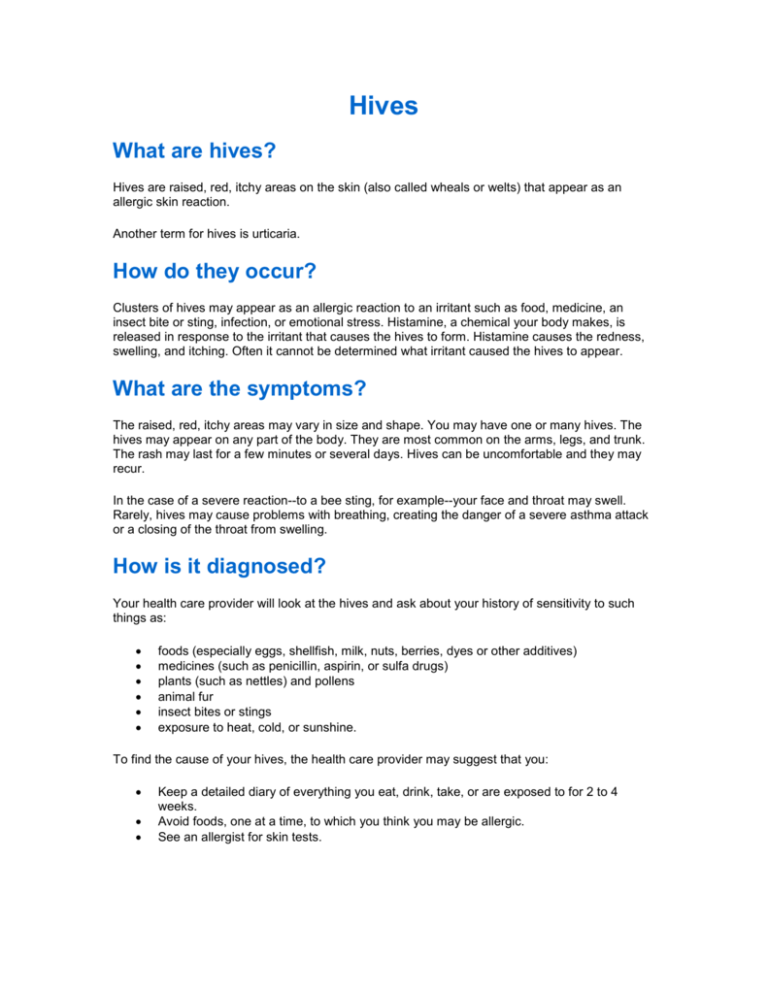
Hives What are hives? Hives are raised, red, itchy areas on the skin (also called wheals or welts) that appear as an allergic skin reaction. Another term for hives is urticaria. How do they occur? Clusters of hives may appear as an allergic reaction to an irritant such as food, medicine, an insect bite or sting, infection, or emotional stress. Histamine, a chemical your body makes, is released in response to the irritant that causes the hives to form. Histamine causes the redness, swelling, and itching. Often it cannot be determined what irritant caused the hives to appear. What are the symptoms? The raised, red, itchy areas may vary in size and shape. You may have one or many hives. The hives may appear on any part of the body. They are most common on the arms, legs, and trunk. The rash may last for a few minutes or several days. Hives can be uncomfortable and they may recur. In the case of a severe reaction--to a bee sting, for example--your face and throat may swell. Rarely, hives may cause problems with breathing, creating the danger of a severe asthma attack or a closing of the throat from swelling. How is it diagnosed? Your health care provider will look at the hives and ask about your history of sensitivity to such things as: foods (especially eggs, shellfish, milk, nuts, berries, dyes or other additives) medicines (such as penicillin, aspirin, or sulfa drugs) plants (such as nettles) and pollens animal fur insect bites or stings exposure to heat, cold, or sunshine. To find the cause of your hives, the health care provider may suggest that you: Keep a detailed diary of everything you eat, drink, take, or are exposed to for 2 to 4 weeks. Avoid foods, one at a time, to which you think you may be allergic. See an allergist for skin tests. It is easiest to identify drugs, foods, or plants that may cause you to have hives because the response usually occurs within an hour. Identifying triggers such as emotional stress or multiple allergies may take more time and require skin tests or other types of tests. How is it treated? The treatment your health care provider recommends will depend on how serious your hives are. He or she may suggest that you do one or more of the following to relieve the itching and reduce the swelling: Soak in a lukewarm bath or use cool compresses. Avoid heat or rubbing, which releases more histamines. Take antihistamine medicine to reduce your allergic response. If the rash is severe or not responding to the above treatments, your provider may prescribe an oral steroid medicine (for example, prednisone). Some allergic reactions are emergencies because they are life threatening. They require immediate medical treatment. If your hives appear suddenly and spread quickly, you will likely receive a shot of antihistamine such as Benadryl (diphenhydramine). If there is any suspicion that your throat is swelling or if you are having trouble breathing or are wheezing, you will also receive a shot of epinephrine (adrenaline) to counteract the reaction. Once the emergency symptoms have been treated, you will be given medicine to take for the next several hours or days to prevent the reaction from recurring. How long will the effects of hives last? The itching, swelling, and redness of hives can last hours to several weeks or months. In most cases the hives eventually go away without treatment, but taking drugs such as antihistamines or corticosteroids help the hives go away faster. The medicines also treat the itching and prevent new hives. Chronic hives last a longer time. Most often (more than 50% of the time) it is not possible to determine their cause. Antihistamines are usually very helpful. The hives go away spontaneously after weeks or months but they may come back repeatedly. How can I take care of myself? Call your health care provider or 911 at once if you have an allergic reaction that affects your breathing, your throat feels tight, or your face begins to swell around the eyes and lips. Take antihistamines or other medicines to help relieve your symptoms. Be sure to ask your health care provider or pharmacist about possible side effects or drug interactions. Avoid foods that seem to cause you to break out in hives. See your health care provider if you continue to have outbreaks of hives. If you have a known severe allergy, such as to bee stings or to a food such as peanuts, ask your provider about carrying EpiPen. EpiPen is a single-dose injection kit of epinephrine. You can use it to give yourself a shot if you have contact with something you are severely allergic to. It will counteract a severe allergic reaction until medical help arrives. What can I do to help prevent hives from recurring? If you know the cause of your hives, you should take steps to avoid the cause. You may need to take frequent, even daily, doses of antihistamine to prevent recurrences.
